May 2025 Newsletter

Governor’s 2025 May Revise Leaves Much Room for Improvement on Child Health Equity
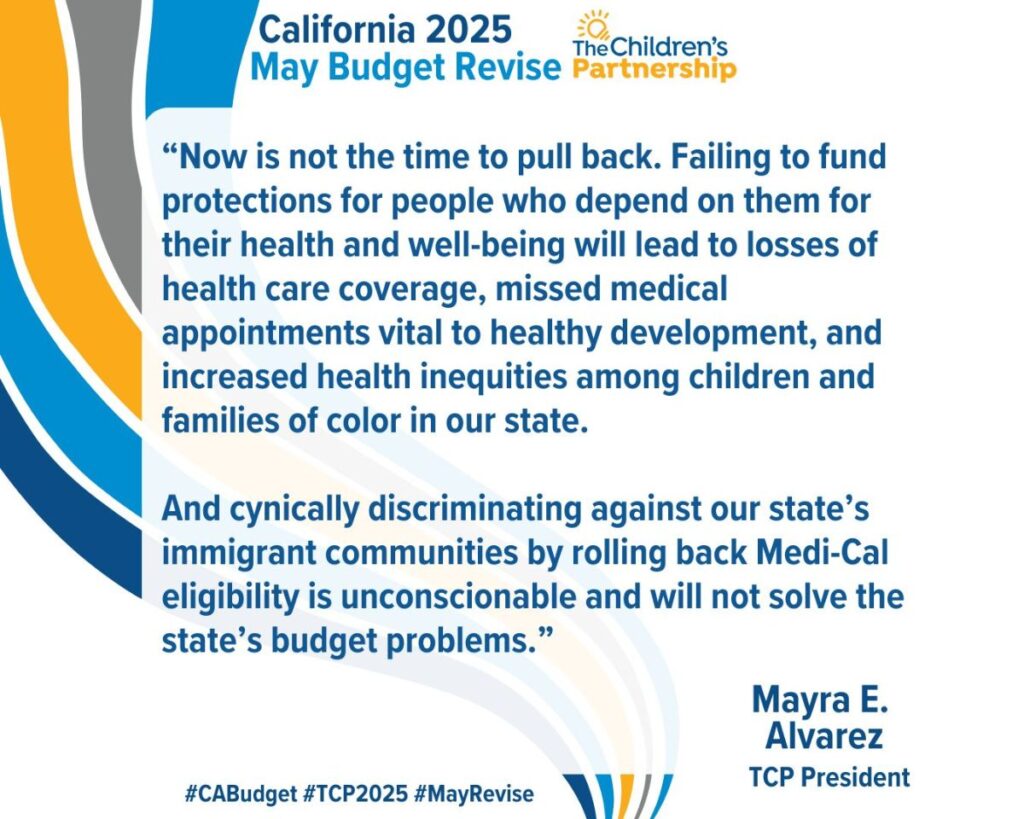
The revised budget proposal Gov. Gavin Newsom released May 14 reflects the immense uncertainty in our current political environment and an economic downturn resulting from newly imposed tariffs and other federal policies.
But in the face of that uncertainty, this May Revise misses California’s opportunity to lead the nation and stand firm in its values. As the federal government continues to scapegoat immigrant communities at every turn and plans to cut funding to the vital programs millions of children and families in California rely on, including and especially Medicaid (known as Medi-Cal in California), we need our state leaders to protect the investments in our state’s future.
“Now is not the time to pull back, when our shared values of dignity, freedom and the chance at a brighter future demand more. Failing to fund protections for people who depend on them for their health and well-being will lead to losses of health care coverage, missed medical appointments vital to healthy development, and increased health inequities among children and families of color in our state. And cynically discriminating against our state’s immigrant communities by rolling back Medi-Cal eligibility is unconscionable and will not solve the state’s budget problems,” said Mayra E. Alvarez, president of The Children’s Partnership.
“More than half of California’s children rely on Medi-Cal for their health insurance, and 3 out of 4 of them are children of color. Nearly 1 in 5 of California’s children lives in a mixed-status family. As a state, we should be doing everything we can to support and protect all our children, their families, and the communities that care for them.”
The Children’s Partnership is especially concerned about the Governor’s plan to roll back Health4All. We are outraged that the May Revise proposes to balance the budget on the backs of immigrants who contribute extensively to our state by freezing Medi-Cal enrollment for undocumented Californians ages 19+ starting next year; instituting a $100 monthly premium for undocumented adults in 2027; and eliminating in-home supportive services, long-term care and dental benefits for this population. When a parent or family member is sick and unable to work or provide care, kids suffer as a result. Ripping away these family members’ health care while they are also under threat of cruel immigration enforcement policies in turn puts the well-being of our children at risk. Furthermore, it will not result in needed savings. We know that when people are left uninsured, costs are shifted to hospital uncompensated care and elsewhere—as was the case before implementation of the Affordable Care Act and subsequent state-funded expansions.
We call on the Governor to reconsider and work with the Legislature to identify more appropriate savings. California’s economy is now the 4th largest in the world. Our state leaders must harness this massive wealth to build a healthier, more equitable California. The Children’s Partnership and our partners will keep fighting to ensure that every child, regardless of race, income or immigration status, has the opportunity to grow up healthy and thrive.
TCP-Supported Bills Advance, Two Co-Sponsored Bills Held
Advocates agree this is a very difficult budget year in California, given the huge amount of uncertainty we’re facing from the federal government. The state Legislature is making tough choices, and unfortunately TCP’s two co-sponsored bills will not advance this year. However, two important bills that TCP is supporting to help immigrant families will move on through the legislative process!
AB 49 (Muratsuchi and Ortega): California Safe Haven Schools Act
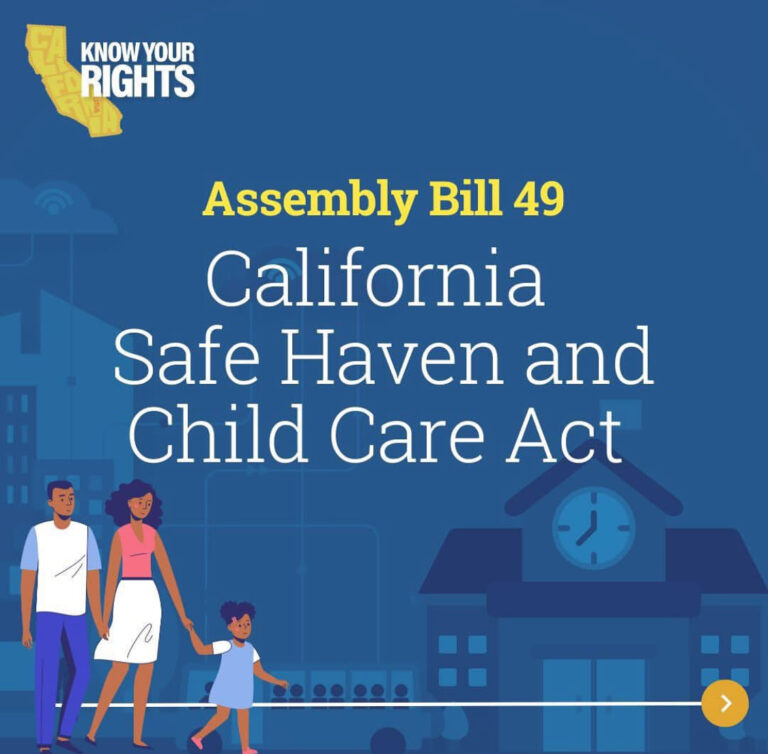
AB 49 is designed to protect children in immigrant families by restricting Immigration and Customs Enforcement (ICE) access to school sites. The bill will improve mental health, reduce stress and foster success, allowing all children to learn without fear. AB 49 had a successful Assembly floor vote May 27 and now moves on to the Senate.
AB 495 (Rodriguez): Family Preparedness Plan Act of 2025
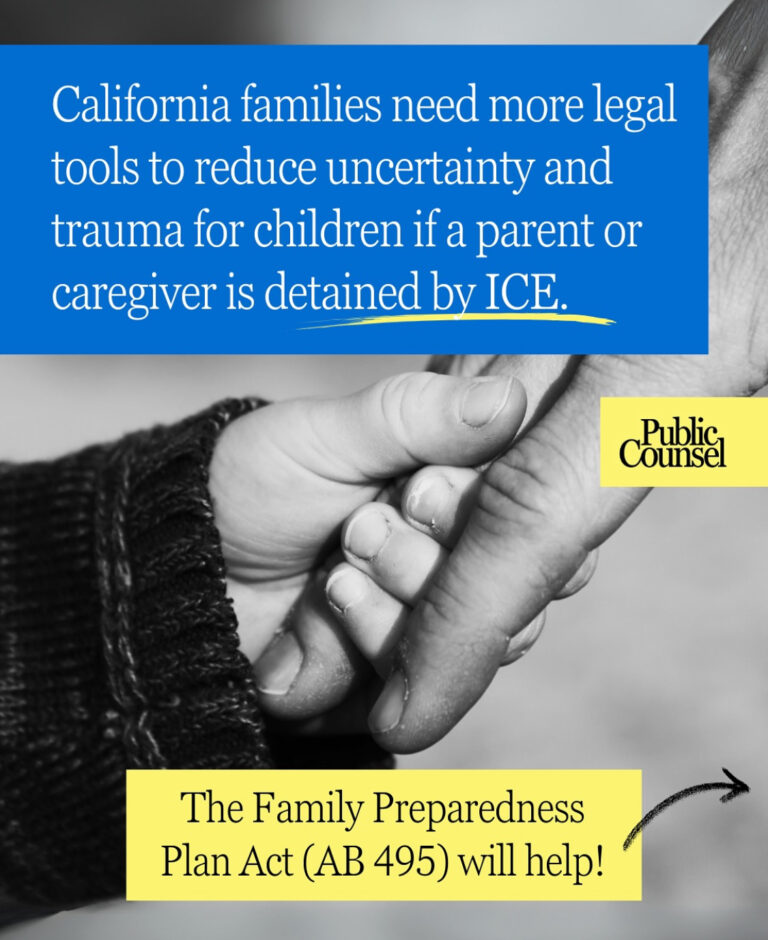
AB 495 shields immigration status from disclosure in child care settings, and through family emergency preparedness, supports children’s mental health, fosters trust, and ensures access to care and education without fear. The bill is on its way to an Assembly floor vote.
AB 403 (Ortega): Community Health Workers and Promotora Medi-Cal Services Transparency Act
TCP proudly co-sponsored AB 403, alongside the Latino Coalition for a Healthy California, California Pan-Ethnic Health Network, and Visión y Compromiso. The bill would have required the Department of Health Care Services (DHCS) to provide an annual analysis to the Legislature and public on the utilization of the Medi-Cal Community Health Worker (CHW) benefit, holding DHCS accountable for its obligation to promote the benefit and ensure that people who need CHW services can access them. AB 403 has been held in the Assembly Appropriations Committee suspense file and will not move forward this year.
SB 531 (Rubio): Mental Health Education
TCP co-sponsored SB 531, which would have expanded mental health education to all schools and grade levels, ensuring all students receive age-appropriate mental health education in elementary, middle and high schools. The bill failed to pass out of the Senate Education Committee and has been converted into a two-year bill, which means our advocacy for this mental health education will continue next year. SB 531 was co-sponsored by the California Academy of Child and Adolescent Psychiatry, California Alliance of Child and Family Services, National Center for Youth Law, and National Alliance on Mental Illness.
While we’re disappointed our two co-sponsored bills won’t continue this year, TCP and our partners will not stop advocating for policies that will help improve the lives of community health workers, the mental health education of our children and youth, and the health and well-being of California’s families.

Call CA Budget Leaders Today to Save Health4All
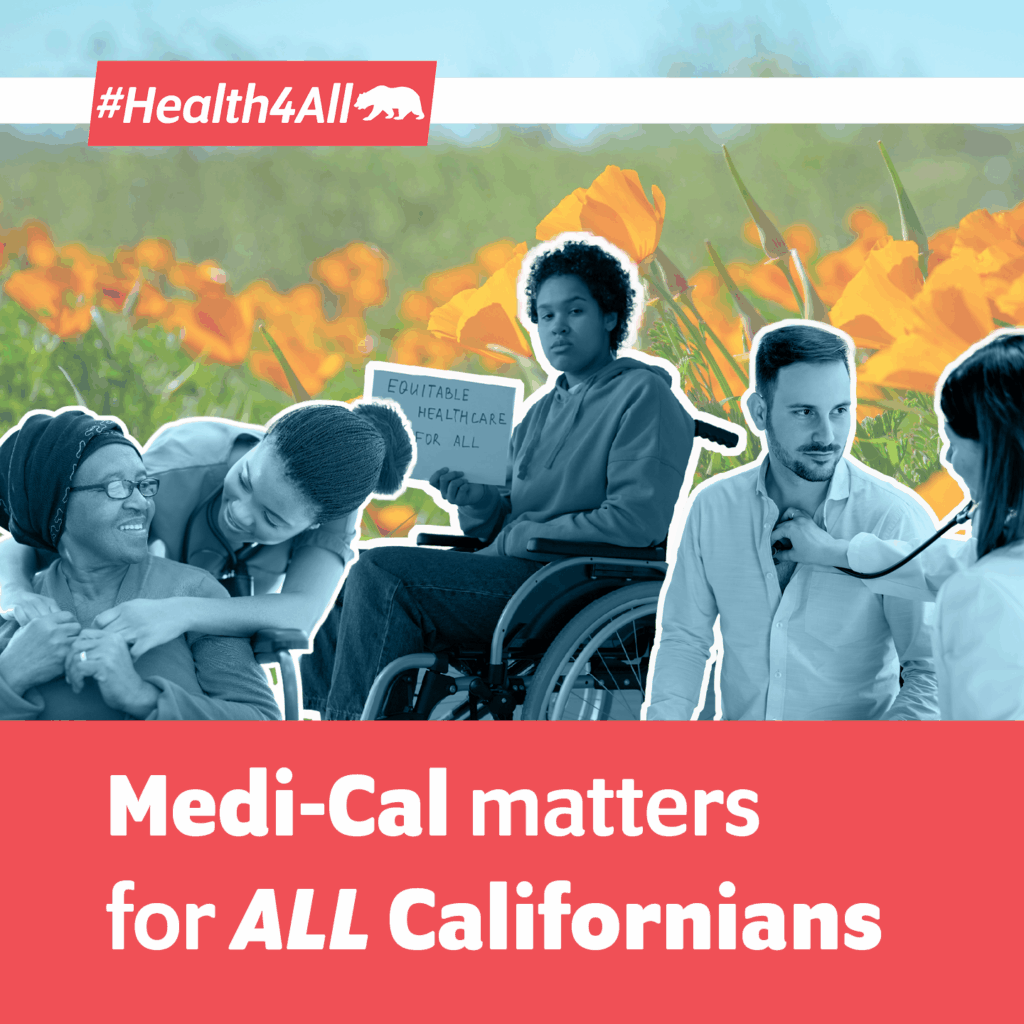
Health4All is under attack.
- The Governor’s May Revise is proposing to freeze Medi-Cal enrollment for undocumented adults starting in January 2026.
- His proposal also adds a $100/month premium for undocumented people ages 19 and older who have Medi-Cal for their health insurance starting in January 2027.
- Additionally, the Governor’s May Revise is proposing to cut in-home supportive services, long-term care and full-scope dental benefits from undocumented people’s health care starting in January 2026.
We cannot see these proposals come to fruition. We must ensure Medi-Cal remains intact and accessible to ALL Californians, regardless of their immigration status. In California, 20% of children live in a mixed-status family. When parents and caregivers are healthy, children are more likely to be healthy.
The Assembly and Senate are now crafting their own budget proposals. Take time today to call our budget leaders and share your opposition to these cuts.
Capitol Office Phone Numbers:
- Governor’s Office
- Gavin Newsom: (916) 445-2841
- Chair of Assembly Budget Committee
- Jesse Gabriel: (916) 319-2046
- Chair of Senate Budget Committee
- Scott Wiener: (916) 651-4011
- Speaker of the Assembly
- Robert Rivas: (916) 319- 2029
- Senate President pro tem
- Mike McGuire: (916) 651- 4002
- Chair of Senate Budget Subcommittee 3 on Health
- Dr. Akilah Weber Pierson: (916) 651-4039
- Chair of Assembly Budget Subcommittee 1 on Health
- Dawn Addis: (916) 319-2030
Also call your district representatives. Don’t know who your legislator is? Find out here. Click on the name of your legislator, and it will direct you to their website. Find “Contact Me,” and it will show you their Capitol and district office phone numbers.
We need as many calls as we can get. The Legislature needs to hear us loud and clear.
Sample script: “Hello, I am [NAME] and I work with [YOUR ORGANIZATION; add in if you are a constituent or work with constituents in their district, if not then disregard] and I am calling to ask that [Assemblymember_________ /Senator _________] oppose cuts to Medi-Cal that would unjustly harm California’s immigrant community. These proposed cuts are discriminatory and would lead to as many as 1 million low-income people losing their health coverage. Now more than ever, immigrants need California to have their back. When parents and caregivers are healthy, children are more likely to be healthy. [Share why Health4All Medi-Cal is important to the community you serve.] Can we count on [Assemblymember_________ /Senator _________] to oppose the proposed cuts to Medi-Cal?”
You can also use the Health4All Coalition’s social media toolkit to continue amplifying.
This will be the first of many ways to push back. Let’s keep fighting for the health of California’s children and families. We’re stronger together!
Tell Congress to Protect Medicaid/Medi-Cal

Congress is in the process of deciding what to slash from the federal budget. The House recently passed a bill to cut at least $700 billion from Medicaid to fund tax breaks for the wealthy. The Senate plans to consider the bill in June.
Cuts to Medicaid’s budget at the federal level mean a lot less money going to states, including to California – where over five million children rely on Medi-Cal.
Don’t let Congress strip care from California’s kids. Tell your representatives in Congress to protect Medicaid before it’s too late.
Get more data and tools on our Protect Medicaid and Medi-Cal webpage.

NEW Social Media Toolkit: Help Secure CA’s Investments by Saving ACEs Aware
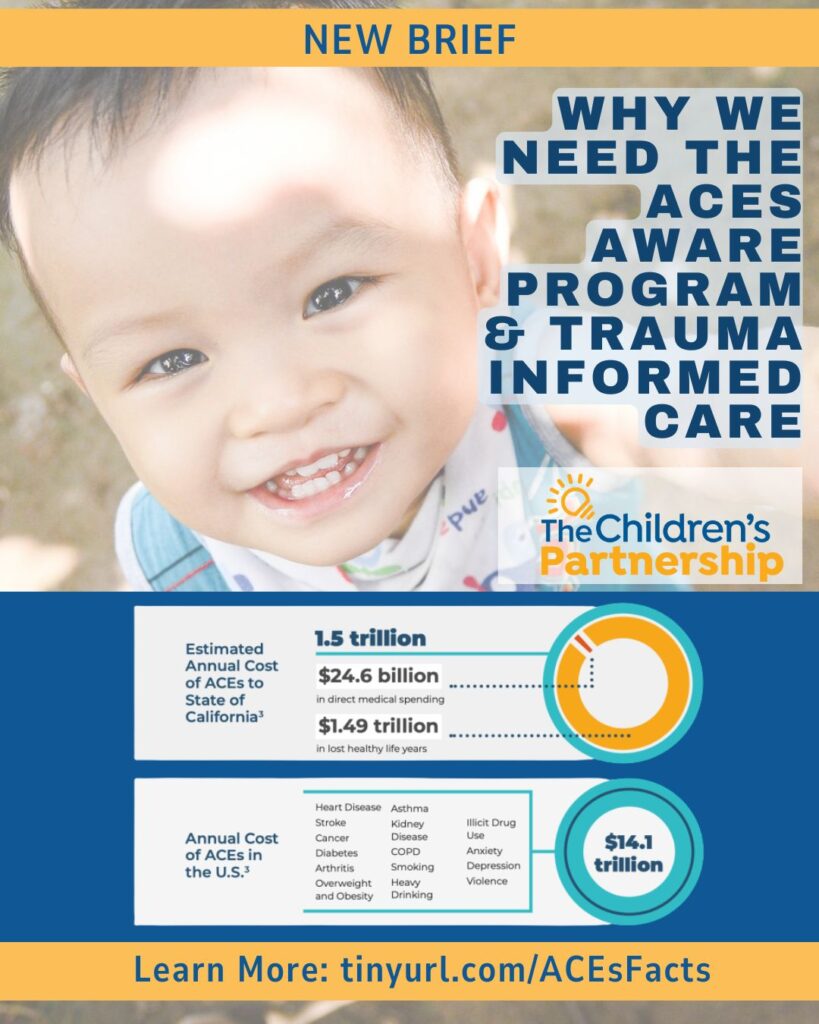
The Children’s Partnership is excited to share our new social media toolkit that supports our brief, “California’s ACEs Aware Program & the Urgent Need for Trauma-Informed Care.”
This toolkit is designed to help raise awareness about adverse childhood experiences (ACEs) and advocate to urge the Administration and the legislature to work toward completely restoring $50 million in funding for ACEs Aware. We were pleased with the Administration’s choice to increase investments in Adverse Childhood Experiences (ACEs) Aware by $2.9M for next year. Although this investment falls far short of the $50 million needed to fully sustain the program, completely sunsetting the ACEs Aware initiative would have had devastating consequences for the long term health and well-being of California’s families.
The toolkit includes:
✔️ Ready-to-share social media graphics and messages
✔️ Key facts from our latest policy brief
✔️ Sample captions and hashtags
We’d love your support in helping amplify this important message across your networks.
If you’re able to share on social media, please tag us @KidsPartnership and our partner @First5Association. Use the hashtag #ACEsAware so we can uplift your posts, too!
Together, we can ensure more children and families have access to the trauma-informed care they deserve.
Know Your Rights: Gender-Affirming Care in California

Recent federal executive orders are attempting to limit coverage of gender-affirming care (GAC) services for transgender, gender diverse and intersex (TGI) people, especially TGI youth. In addition, the U.S. House Energy & Commerce Budget Bill that is currently moving through Congress has proposed to limit federal funding for this care. GAC services are medically necessary inpatient and outpatient medical procedures, interventions and medications used to treat gender dysphoria. Several of the executive orders that have attempted to limit access to GAC have been challenged in the courts, and parts of them have been enjoined. Advocates are also fighting to stop Congress from putting limits on funding for GAC services into federal law.
Here’s what you need to know about GAC:
- There is no change to the law in California! TGI people in California have the following rights:
- You have the right to GAC for adolescents and adults.
- You have the right to be free from discrimination on the basis of your gender identity or access to GAC.
- You have the right to receive culturally competent care from providers.
- You have the right to keep your health care information private.
- If you’re enrolled in a health plan or insurance company licensed in California:
- Your plan/insurer staff must receive training on TGI cultural competency.
- Your plan/insurer must make clear in its provider directory which providers offer GAC.
- You have the right to appeal delays or denials in care and other decisions you do not agree with.
- Medi-Cal Coverage of GAC Services
- Medi-Cal covers GAC services for all Medi-Cal members, both TGI adults and youth, when medically necessary and clinically appropriate. Core GAC services include hormone therapy and a range of surgical procedures, such as chest reconstruction surgery, voice modification surgery and more.
- Medi-Cal providers and Managed Care Plans (MCPs) are prohibited from discriminating against Medi-Cal members based on their gender, gender identity or gender expression, and must treat members in a manner consistent with their gender identity or expression. Additionally, MCPs are required to provide and complete evidence-based cultural competence training for the purpose of providing trans-inclusive health care for individuals who identify as TGI.
If you have been told you cannot get the care you need because of executive orders or other federal threats, or if you are otherwise experiencing barriers to accessing GAC, you can get free legal assistance regardless of income from the Health Consumer Alliance at (888) 804-3536 and healthconsumer.org.
To learn more about your right to GAC, read National Health Law Program’s (NHeLP) Know Your Rights: Access to Health Care for TGI Californians.
To learn more about how to access GAC in Medi-Cal, read NHeLP’s An Advocate’s Guide to Medi-Cal Services: Chapter 5 – Gender-Affirming Care Services.
If you have further questions, contact FosterYouthTA@healthlaw.org.

Registration for Bringing Up California Inaugural Summit Ends Soon!
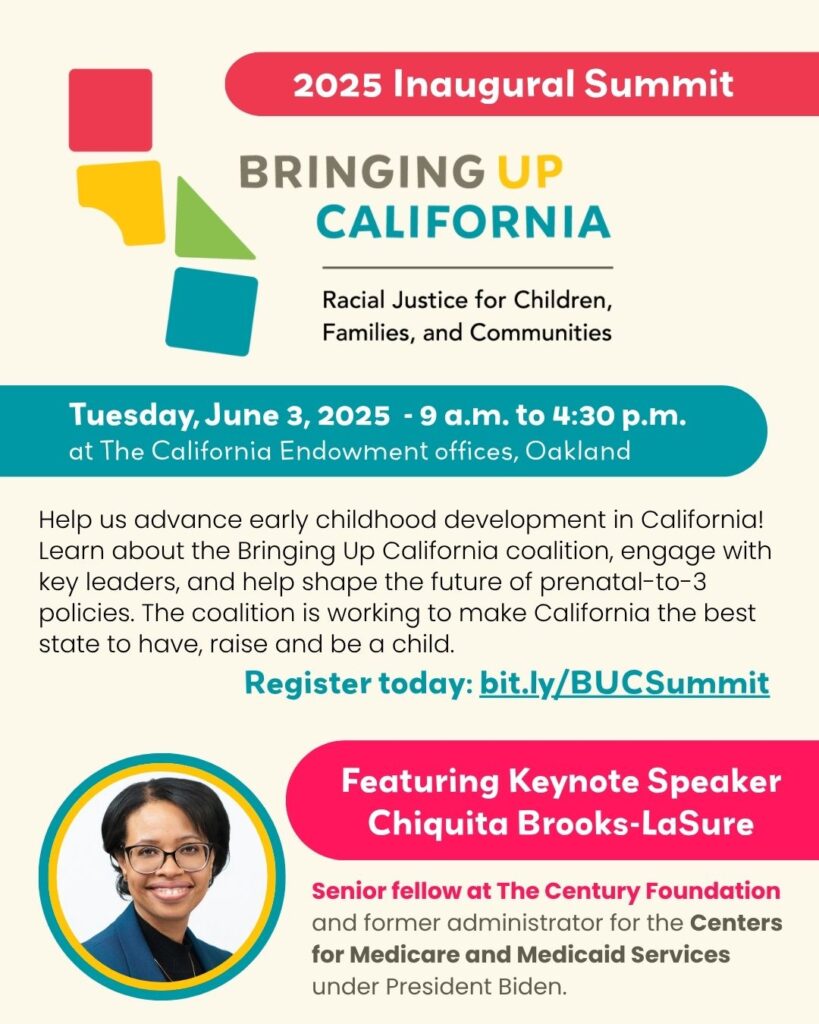
We’re just days away from the Bringing Up California Inaugural Summit, happening Tuesday, June 3, in Oakland!
Haven’t registered yet? Sign up now! Registration closes tomorrow.
If you’ve previously registered and can no longer attend, please let us know.
We’re gathering advocates, practitioners and community leaders to build momentum for prenatal-to-3, maternal health, and early childhood development policy and program development.
Let’s make California the best state to have, raise and be a child!
Get inspired by our dynamic speakers:
- Keynote Speaker Chiquita Brooks-LaSure, Senior Fellow at The Century Foundation and former Administrator of the Centers for Medicare & Medicaid Services at the U.S. Department of Health and Human Services
- Panelists
- Ruby Amarachi Odinma, Mother, Freelance Journalist and Abundant Birth Project Beneficiary
- Palav Babaria, Chief Quality and Medical Officer and Deputy Director of Quality and Population Health Management at California Department of Health Care Services
- Dr. Rhea Boyd, Mother, Pediatrician, and Principal for Birth Justice and Perinatal Equity at Public Works Alliance
- Fabiola González, Executive Director, First 5 Fresno County
- And several Bringing Up California coalition members!
Event Details
Date: Tuesday, June 3, 2025
Time: 9:30 a.m. to 4:00 p.m.
Reception: 4:30 p.m. to 6:30 p.m.
Location: The California Endowment, 2000 Franklin St, Oakland, CA 94612
Space is limited. Reserve your spot today!
Thank you to our sponsors for making this event free for attendees:
Village Sponsor
First 5 LA
California Health Care Foundation
Partner Sponsors
The David & Lucile Packard Foundation
Health Begins
Health Management Associates
About Bringing Up California
The coalition is co-chaired by The Children’s Partnership and Catalyst California. Learn more about the coalition’s steering committee members. Sign up to receive updates from Bringing Up California.
The Children’s Partnership Welcomes New Board Members
We’re thrilled to introduce three new members of our Board of Directors. Each brings deep expertise, personal commitment and lived experience that align with and strengthens our mission to ensure healthy children, strong families, and safe, welcoming communities.
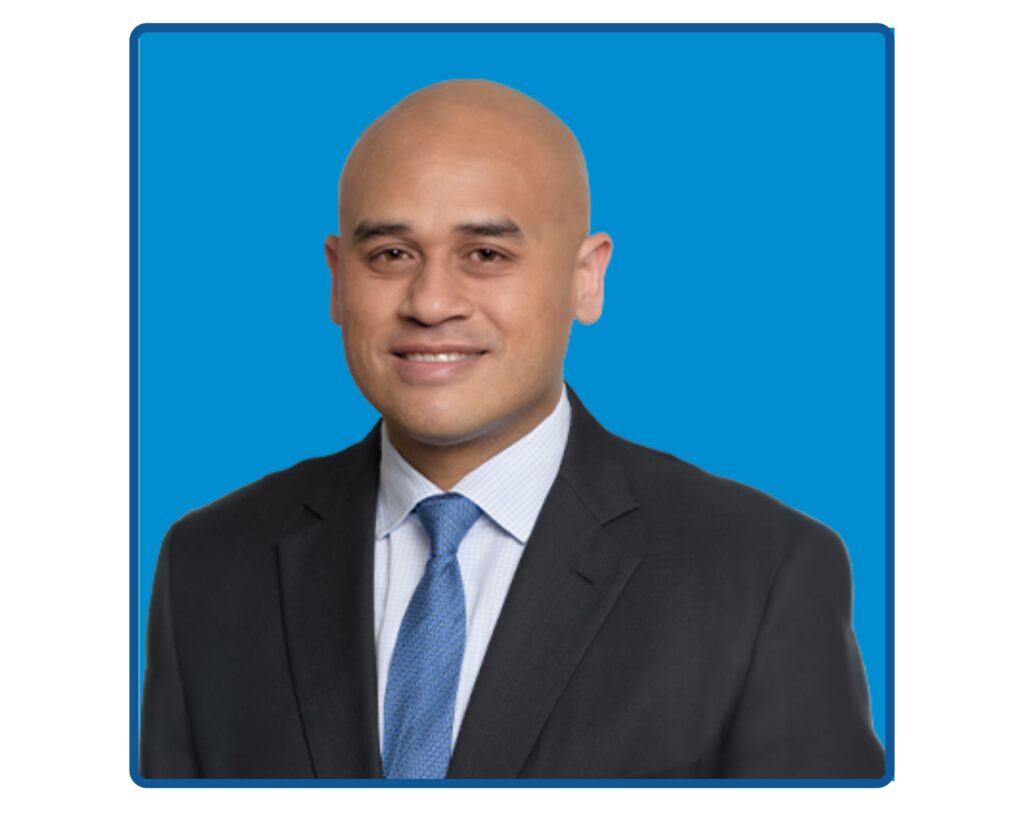
Chris Pelham is a Los Angeles native and head of litigation and disputes at Norton Rose Fulbright US LLP. He brings a justice-driven lens to our board, rooted in personal experience and professional insight. Chris’ commitment to equity supports our work to eliminate systemic barriers and promote safe, inclusive communities, particularly for children and families impacted by racism and economic instability.
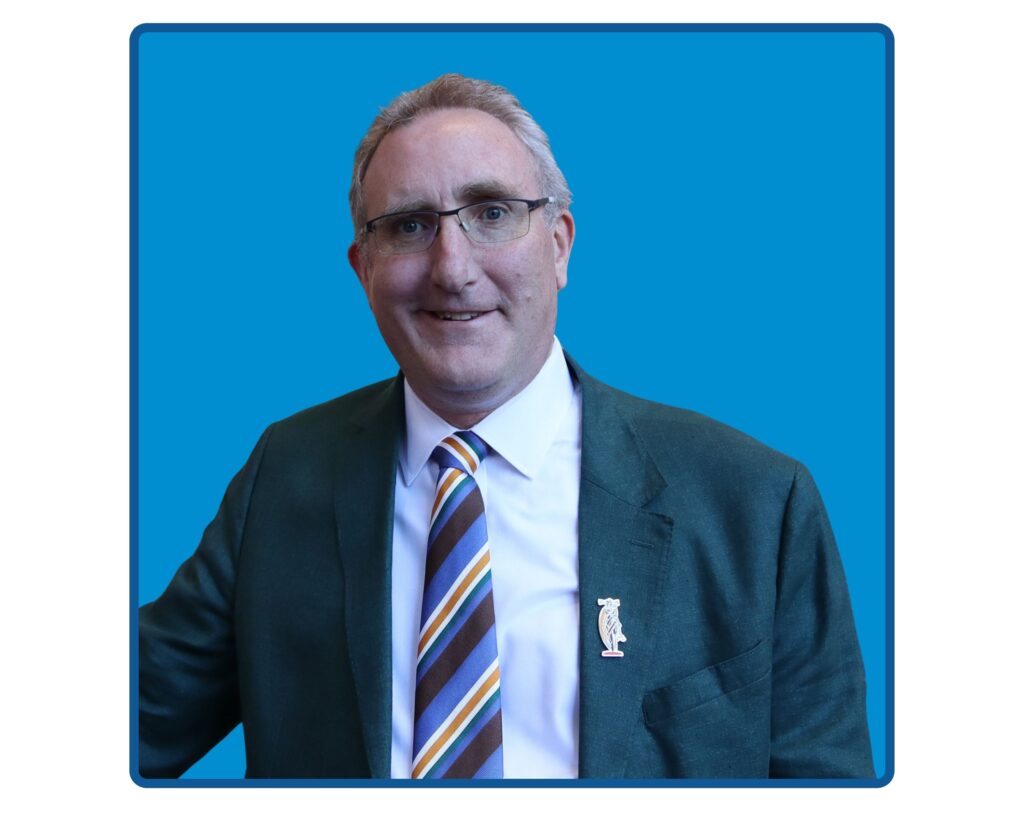
Andy Imparato, executive director of Disability Rights California, is a long-standing TCP partner and champion for disability rights. His advocacy has centered those most often left out of policy conversations, echoing our mission to elevate family, youth and community voices, especially when shaping accessible health systems. Andy’s leadership in disability justice directly advances our efforts to build responsive, community-defined care and ensures that no one is left behind in the pursuit of health equity.

Rebecca Medina returns to the TCP board after previously serving for 15 years as a nonprofit executive and health policy professional, advancing the health of underserved communities through local, state and federal advocacy. She now brings that same dedication to her current role as a bedside registered nurse at Stanford Health Care, where she continues to advocate for family-centered and culturally responsive care.
Rebecca’s combined experience in policy, systems leadership and direct service gives her a unique and grounded perspective on the social and structural factors that impact health.
We’re deeply grateful to Chris, Andy and Rebecca for their unique perspectives and leadership. Please join us in welcoming them to our board!
Eva Rivera Speaks at LA Best Babies Network Home Visiting Day
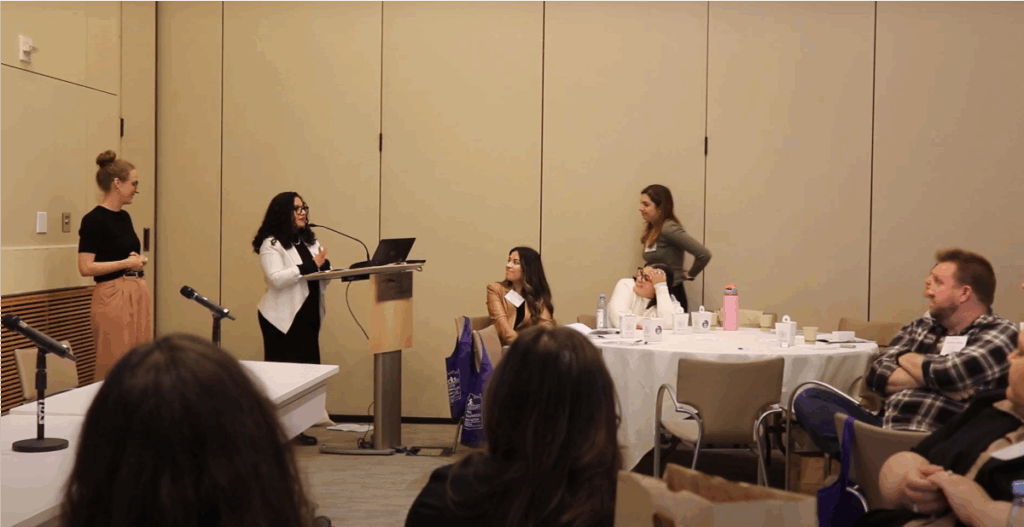
On April 25, Eva Rivera, TCP advocacy director of early childhood development, gave the closing remarks at the first in-person Home Visiting Day hosted by LA Best Babies Network and the Los Angeles County Perinatal and Early Childhood Home Visitation Consortium. The event brought together nearly 100 attendees at the California Endowment in downtown Los Angeles to celebrate the power of home visiting services across the county.
“Let’s walk out of our home visiting gathering refueled, recommitted and reconnected,” she said. “Let’s carry this energy forward. Let’s remind each other, over and over again: You are not alone. And when we move together, we move farther. We move faster. And we move toward the future every child deserves.”
Watch a video of Eva’s remarks.
Mayra E. Alvarez at Hispanas Organized for Political Equality’s Latina Action Day

On May 6, TCP President Mayra E. Alvarez joined Hispanas Organized for Political Equality (HOPE) at their Latina Action Day. Her panel, “Nurturing Our Future: Centering Latina Mothers,” centered on HOPE’s newly unveiled report, Equity in Maternal Health, capturing the voices of Black women and Latinas on their childbirth experiences in California. The panel brought together health care providers, policy leaders and advocates to discuss how to advance policies that improve maternal care, strengthen economic security, and support healthier outcomes for California families. View a recording here.
Alvarez Speaks at Tribal Child Care Conference
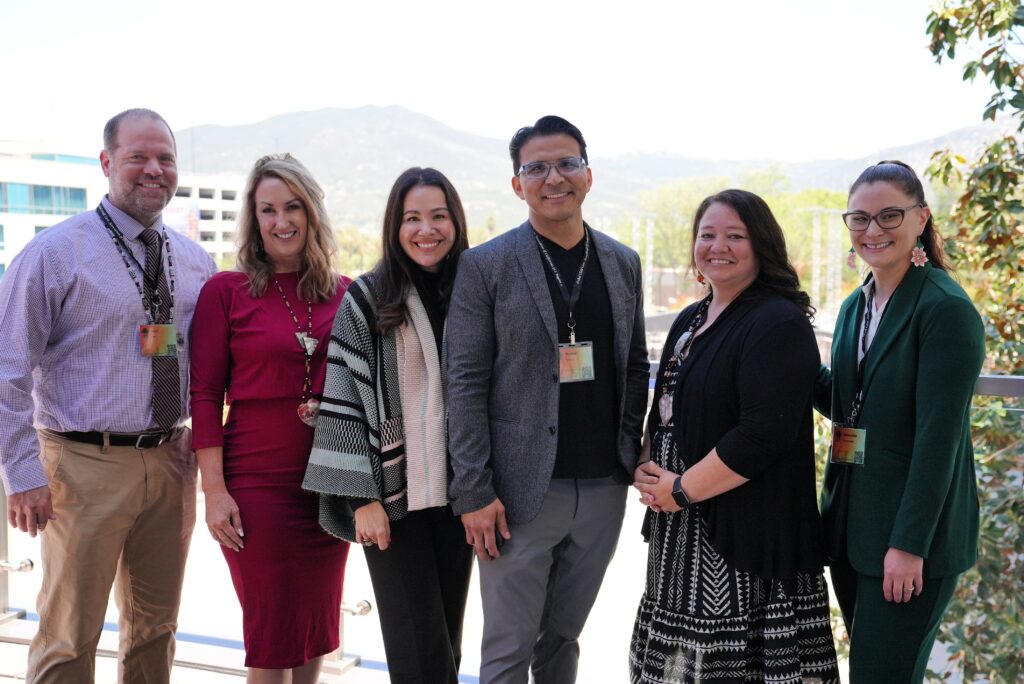
The Children’s Partnership joined tribal leaders, policymakers and advocates from across the state at the Tribal Child Care Association of California (TCCAC) Annual Conference in Alpine, CA. This annual gathering celebrates the power of tribal communities to lead and shape culturally affirming early care and learning systems for Native children and families.
TCP President Mayra E. Alvarez joined the advocacy panel discussion to talk about how changes in politics and funding rules are creating new challenges for tribal early childhood programs. She emphasized the need for long-term investment in Native communities, how some federal policies actively limit the ability of tribal programs to celebrate and sustain their cultures, and the power of coalition work, including Bringing Up California.
“Parents know what’s best for their children, but when we are told what words we can and can’t use out of fear of losing funding, we lose our ability to honor culture—and that’s where our advocacy is essential,” she said.

TCP President Quoted by EdSource, KPBS on Effects of Governor’s Proposal to Roll Back Medi-Cal Coverage for Undocumented Adults
Mayra E. Alvarez explained to EdSource that when a parent or family member is sick and unable to work or provide care, children suffer as well. “Ripping away these family members’ access to health care, while they are also under threat of cruel immigration enforcement and other anti-immigrant policies, in turn puts the well-being of our children at risk,” she said. Alvarez also told EdSource studies show that when parents become eligible for Medi-Cal, they are more likely to learn about health insurance options available to their children and enroll them. “This ‘welcome mat’ effect can lead to a noticeable increase in the number of children covered by Medi-Cal or similar programs, even without changes in their individual eligibility,” she said. Alvarez was also interviewed by KPBS about Gov. Newsom’s budget proposal, and said that cutting access to preventive care will not save the state money in the long run.
TCP Thought Leadership on Impacts of Medicaid Cuts Featured in Public News Service, Univisión San Diego
Eva Rivera, TCP advocacy director of early childhood development, was quoted by Public News Service on the effects of cuts to Medicaid on rural California, where hospitals rely heavily on the funding. “In the rural areas of California, half of all births are being covered by Medicaid,” she said. “In California, 27% of women, ages 19 to 44 years old, rely on Medicaid for health insurance. So a good portion of the population is depending on this care.” The story also ran in Spanish. TCP President Mayra E. Alvarez was interviewed by Univisión San Diego after serving as emcee of a Fight for Our Health rally at Rady Children’s Hospital. She explained how Medicaid, known as Medi-Cal in California, is an essential program for the well-being of our children, families and hospitals that millions of people depend on.
